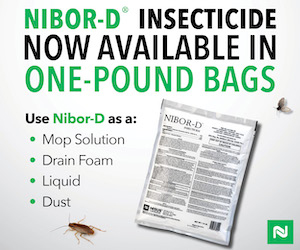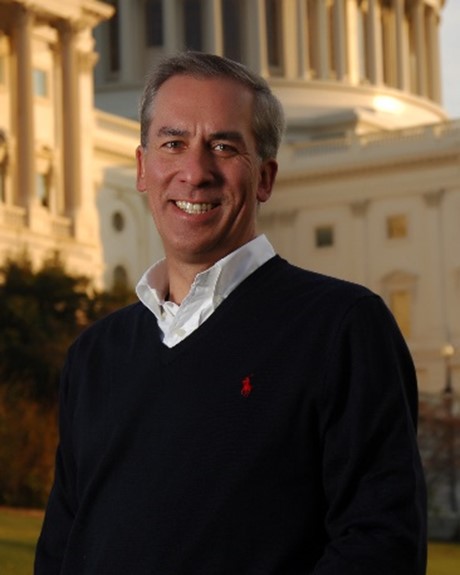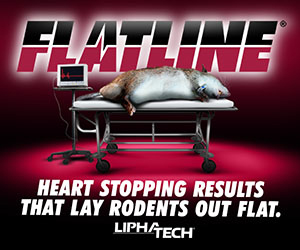 |
||||||||||||||
|
November 2023
|
||||||||||||||
|
Monthly CEO Briefing
As the Pest Control Operators of California (PCOC) heads towards the end of the year, its agenda continues to be bustling with significant activities and engagements. A notable development is the Department of Pesticide Regulation's (DPR) release of its proposed Strategic Plan for 2024-2028, outlining the agency's future direction and priorities. The PCOC has been actively involved in this process, participating in public meetings and submitting a detailed comment letter. This letter highlights PCOC's concerns regarding DPR's proposed direction and its heavy reliance on Sustainable Pest Management (SPM), a key element in DPR's future initiatives. In response to the increasing focus on SPM, PCOC is diligently working on a position paper. This document aims to provide association members with in-depth insights into SPM, fostering an industry-centric understanding and discourse on this topic. Further discussions and elaborations on this paper are scheduled for the next PCOC Board of Directors meeting. Another area of active involvement for PCOC is the ongoing development of regulations concerning eye wash stations (Site Decontamination) by DPR. After PCOC submitted comments over the summer highlighting the potential industry impacts of these regulations, DPR is currently reassessing both the rationale and requirements of these proposed regulations. Updates on these regulations will be communicated once they are officially published. Legislative actions also continue to impact DPR and the pest control industry. A significant legislative development is the passing of AB 1322, which designates diphacinone (found in products like Ditrac, Wilco Gopher Getter, LiquaTox) as a Restricted Use Material. This bill aligns diphacinone with the restrictions previously applied to second-generation anticoagulants, limiting its use in residential and commercial areas such as homes, apartments, strip malls, and grocery stores. Lastly, PCOC draws attention to specific pesticide usage regulations. According to the product labels and Surface Water Regulations by DPR, Termidor and Taurus are restricted from use during the months of November through February. Additionally, pyrethroids (e.g., Demand, Suspend, Talstar) are prohibited for use during rainfall. Compliance with these rules is critical, as enforcement is expected to be stringent in certain counties. As PCOC continues to navigate these diverse challenges and opportunities, its commitment to proactive engagement and industry advocacy remains steadfast. Stay tuned for further updates and developments as PCOC moves forward into 2024. Darren Van Steenwyk, M.S., BCE Upcoming Events
All Event Information can be found at WWW.PCOC.ORG/EVENTS
CAPMA Classifieds
In his final action of the 2023 legislative season on October 13, 2023, Gov. Gavin Newsom signed the California Ecosystems Protection Act, AB 1322, into law. The measure adds diphacinone, a first-generation anticoagulant rodenticide (FGAR) developed prior to 1970, to an existing list of banned second-generation anticoagulant rodenticides (SGAR) passed in 2020 which placed a moratorium on second-generation rodenticides, those developed after 1970. The bill introduced by Assembly Member Laura Friedman (D-Burbank) contains exemptions for using pesticide for research, agricultural activities and for eradicating invasive species in addition to several other circumstances. The Pest Control Operators of California (PCOC) and other stakeholders engaged in an aggressive lobbying effort against the legislation that included a Voter Voice campaign that delivered over 300 letters to the Governor requesting his veto of the measure. PCOC and other stakeholders advocated that decisions regarding the safety of diphacinone should be decided by Department of Pesticide Regulation professionals. While the law is set to take effect January 1, 2024, pest control companies in California are already feeling the effects of the moratorium due to limited supply. With the impending moratorium on diphacinone effective at the beginning of the new year, the actives pest management professionals will have left are the following chlorophacinone, the only first-generation anti-coagulant left in California. Bromethalin is a non-anti-coagulant, that works on the central nervous system dysfunction. Cholecalciferol, also known as vitamin D3, is an acute single feed rodenticide. Zinc phosphide can also be used for commensal as well as ground burrowing rodents. In his “The Voice” article in the Winter issue, PCOC advocate Dom DiMare pointed out that more than 3,000 measures were introduced in total this year between the California Assembly and the Senate. The legislative mark is the highest total in over a decade, and a near record amount of bills for one year. Of the bills introduced, 1,704 were either killed or turned into two-year bills (meaning they could be resurrected next year without having to start from the beginning of the legislative process). There were 1,326 bills that made it to the Governor’s desk for his signature. Of those, Gov. Newsom signed 1,170 and vetoed only 156, resulting in a veto percentage of just 13.3%. As most readers are aware, PCOC’s mission is to protect people, property and the food supply through environmental stewardship and legislative and regulatory advocacy. This year that mission was put to the test as PCOC actively worked on nine major legislative bills that had significant impacts on the pest management professionals. While disappointed in the outcome of AB 1322, PCOC has already begun the process of developing a new strategy to address the changing landscape in Sacramento. It is imperative that PCOC’s leadership continue to proactively engage with legislators and their staff. During the recent PCOC Strategic Thinking Process event in Burbank, participants discussed innovative grassroots initiatives to enhance the pest management industry’s educational efforts at the local district levels. Now more than ever, it is up to small, medium, and larger pest control businesses to join the PCOC organization to significantly grow the membership that speaks as “one voice” on behalf of the professional pest management industry in California. If you know an industry colleague that is not currently a PCOC member, please reach out to them and encourage them to join. It is not only important to their business, but yours as well. The late former Speaker of the House Thomas “Tip” O’Neil is credited with coining the phrase, “All politics is local.” Speaker O’Neill’s context is typically related to political elections. However, its true context centers on informing legislative candidates on specific policy concerns. In 2024, PCOC and its membership must deliver better than ever in educating legislators and candidates on the importance of your pest control professional’s role in safely protecting California’s population, property, and the food supply. Michael E. Wilson We hate to think about it, but in this day and age planning around the potential consequences of a disaster will pay dividends. This quiz will help you determine if your business is ready to overcome a disaster. If you cannot answer “yes” to every question, you have work to do!
If you answered “No” to any of these questions, get a disaster plan going. You will be amazed at the peace of mind you gain from having a solid plan in place. For additional help, please contact the PCOC Insurance Program professionals of EPIC at (877) 860-7378
Frequently Asked For Websites
|
||||||||||||||






